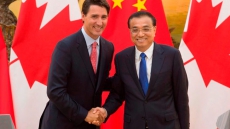With India saying that there have been differences over the implementation of the 1960 Indus Waters Treaty, a dispute that was referred to an international tribunal under the aegis of the World Bank, the issue has come back into focus because of the current tension with Pakistan following the September 18 cross-border terror attack on an army base at Uri in Jammu and Kashmir that claimed the lives of 18 Indian soldiers.
On Thursday, India raised the issue saying a treaty could not be a "one-sided affair".
So, what is the treaty all about? Here is a primer:
What is the Indus Waters Treaty?
The Indus Waters Treaty is a water-sharing arrangement signed by then Indian Prime Minister Jawaharlal Nehru and then President of Pakistan Ayub Khan on September 19, 1960, in Karachi. It covers the water distribution and sharing rights of six rivers -- Beas, Ravi, Sutlej, Indus, Chenab and Jhelum. The agreement was brokered by the World Bank.

Why was the agreement signed?
The agreement was signed because the source of all the rivers of the Indus basin were in India (Indus and Sutlej, though, originate in China). It allowed India to use them for irrigation, transport and power generation, while laying down precise do's and don'ts for India on building projects along the way.
Pakistan feared that India could potentially create droughts in case of a war between the two countries. A Permanent Indus Commission set up in this connection has gone through three wars between the two countries without disruption and provides a bilateral mechanism for consultation and conflict-resolution through inspections, exchange of data and visits.

What does the agreement entail?
The treaty gave the three "eastern rivers" of Beas, Ravi and Sutlej to India for use of water without restriction.
The three "western rivers" of Indus, Chenab and Jhelum were allocated to Pakistan. India can construct storage facilities on "western rivers" of up to 3.6 million acre feet, which it has not done so far. India is also allowed agriculture use of 7 lakh acres above the irrigated cropped area as on April 1, 1960.
Is there a dispute?
Although the two countries have been managing to share the waters without major dispute, experts say that the agreement is one of the most lop-sided with India being allowed to use only 20 percent of the six-river Indus water system. Pakistan itself in July this year sought an international arbitration if India sought to build hydro power projects on the Jhelum and Chenab rivers.
Though the agreement has been seen as one of the most successful water-sharing pacts, the current tension between the two South Asian neighbours might well lead to a flashpoint. Strategic affairs and security experts say that future wars could well be fought over water.

Could India abrogate the agreement?
This is unlikely since the treaty has survived three wars between the two countries. Although on Thursday India raised the issue, saying that for a treaty to work there had to be "mutual cooperation and trust" between the two sides, this seems to be more pressure tactics than any real threat to review the bilateral agreement.
And the idea that India can intimidate Pakistan by threatening to cut of river waters is nothing new. It has arisen before every major conflict. A unilateral abrogation would also attract criticism from world powers, as this is one arrangement which has stood the test of time.

Short of abrogation, can India do something?
Some experts have said that if India starts making provision for storage facility involving the "western rivers", which it is allowed under the treaty of up to 3.6 million acre feet, this may send a strong message to its neighbour.
Pakistan has often sought arbitration proceedings just on mere impression that India may do so, seeking to dissuade its larger neighbour from tinkering with the status quo.





